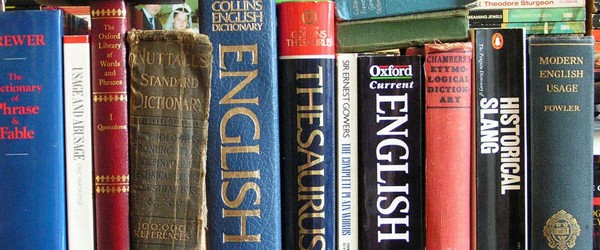You shall know me by the books I kept.
I realise that it is a romantic and questionable notion, applying only to some people and in limited ways. But I live by the example of my parents, for whom books and reading were tools of emancipation. For my mother, who responded so well to the first books she encountered as a child that she was allowed to attend high school. Later, after the war, this enabled her to go to university in a big city, instead of staying and becoming a teacher in her rural community, as her parents had planned. And for my father, who had to leave school at fourteen to work full time in his family’s upholstery workshop, but who made up for his lack of formal education by reading widely and voraciously, including in the subjects of my mother’s long and laborious tertiary studies.
For a time, in fact, it was my father who did all the reading. My mother’s eyesight became quite poor as she embarked upon her final exams and her dissertation, just before I was born. Therefore he read the necessary textbooks to her, teaching himself a great deal in the process about Greek and medieval philosophy, as well as Roman history and the Latin language.
I grew up in a house full of books. They weren’t just any books – are they ever? – but rather a specific collection that mapped the history of my parents’ intellectual development and their relationship. I only became aware of this much later.
Growing up in that small apartment crammed with bookshelves, I developed the habit of reading anything that came to hand. For me, it was a perfectly natural thing to do, to read a Russian or French novel in translation simply because it was within reach, or had an attractive cover, even if it spoke of things I couldn’t really understand, or was full of names I couldn’t sound out.
Frequently a visitor would quip that we sure had a lot of books. Still, I had assumed everyone lived in a library like we did, even when we visited other houses and I saw that they didn’t.
Over time I built my own, considerably smaller library, which I largely dismantled before moving from Italy to New Zealand. But I didn’t pine too much for the loss, as I knew I would have time to build another. Gradually, however, I became aware of the problems my parents’ library would pose. After Dad died and Mum moved into a rest home back in the old village, things came to a head. How many books would she be allowed to take? The people at the home promised a couple of shelves in a communal area, and limited space in her room. This wasn’t an issue they had ever come across before – not in the place she had left seven decades earlier in no small part because it didn’t value education or cultivate curiosity for things beyond local knowledge. After some negotiation, we settled on fifty books.
Fifty books. So few. I went up and down ladders, read out the titles to her. Almost every single one brought up a memory, some of them involving my father, or my sister, or an old friendship, or an exam. That library was, if not quite the story, at least a story of her life. We spent hours on this job on successive nights, neglecting others that might have seemed far more urgent in the short time allowed for packing up the apartment during my overseas visit.
The first selection was heartbreaking. Mum could barely let go of one book in ten out of the thousands she owned. But I understood that it was part of the process, a gradual coming to terms. We revised the list, once and then twice. Settled on what needed to go in that almost fateful box.
They are my books now. Mine and my sister’s. There was nothing we could do with the bulk of the library, no-one we could even donate it to; there is no longer a market in Italy for second-hand books that aren’t rare or antique. They are objects of no cultural or monetary worth. Most of them had to be destroyed.But I treasure the few I possess, as relics both of my early education and of the values and ideas that my parents shared and endeavoured to transmit to us.
You shall know me by the books I kept.
I know it is a false statement; there is so much it leaves unsaid and unquestioned. But while books are still material objects, as opposed to sequences of digital code, and while they occupy space in our homes and encumber our lives, I know it also contains a grain of truth. That we are in conversation with our books. That they help to define who we are, like other aspects of our taste and our style. Or like the people we love.
Read the rest of Overland 227
If you enjoyed this piece, buy the issue




